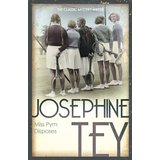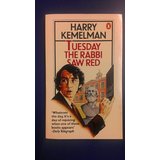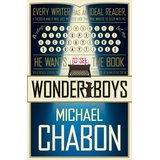Books set in universities: more cross-blogging
 Time for another list. My good friend, Moira (Clothesinbooks.com), and I are sharing eight of our favourite novels set in universities and colleges. Here are mine:
Time for another list. My good friend, Moira (Clothesinbooks.com), and I are sharing eight of our favourite novels set in universities and colleges. Here are mine:
- Josephine Tey, Miss Pym Disposes (1947). Not just one of my favourite novels set in a college, but one of my favourite novels, full stop. I will be astonished if Moira doesn’t also choose this one. Miss Pym, who has had unexpected success with a work of popular psychology, is persuaded to give some lectures at Leys Physical Training College, where her old friend, Henrietta, is now head. There is a nasty accident in the gym and a student dies – or is it an accident? Lucy Pym at last uncovers the truth in a truly startling denouement. The depiction of the college and its students is wonderfully convincing and entertaining.
- Gaudy Night by Dorothy L Sawyers (1935). I’ll be pretty surprised if she doesn’t choose this one, too. This scarcely need an introduction. Harriet Vane returns to her alma mater, the all-female Shrewsbury College, in Oxford for the annual ‘Gaudy’ celebrations. A series of malicious pranks includes poison-pen messages, obscene graffiti, the destruction of a set of proofs. Enter Lord Peter Wimsey . . .
- Tuesday the Rabbi Saw Red by Harry Kemelman (1973). Rabbi Small has had
 enough of the bickering of his congregation in the Massachusetts town of Barnard’s Crossing, and jumps at the chance to teach a course on Jewish Studies at Windermere Christian College. Soon someone lies dead, brained by a plaster bust of Homer! I love this series. The Rabbi is an engaging character, humane, perceptive – and stubborn. The mysteries are interesting, too, and are solved by some special bit of insight on the part of Small – usually springing from his rabbinical learning.
enough of the bickering of his congregation in the Massachusetts town of Barnard’s Crossing, and jumps at the chance to teach a course on Jewish Studies at Windermere Christian College. Soon someone lies dead, brained by a plaster bust of Homer! I love this series. The Rabbi is an engaging character, humane, perceptive – and stubborn. The mysteries are interesting, too, and are solved by some special bit of insight on the part of Small – usually springing from his rabbinical learning.
- Emma Lethan, Come to Dust (1968). The Emma Lathen novels were written by two economists, Martha Hennisart and Mary J. Latis. They feature as their investigator John Putnam Thatcher, urbane Vice-President of the Sloan Guaranty Trust, and how quaintly old-fashioned it seems that a banker could act as a moral touchstone. In Thatcher’s work he is involved in approving investments and the novels employed a wide range of business setting. In this one it’s the Ivy League Brunswick College and its alumni association. There’s a dead student and a missing bond worth $50,000.
5. Wonder Boys by Michael Chabron (1995). The joys of the comic campus novel:  libidinous lecturers, hapless students, unwritten books. The variation here is that Grady Tripp is a lecturer in creative writing and his unfinished book is a novel with the title, Wonder Boys. Chabron’s novel, takes place over the single weekend of the yearly Wordfest conference and involves a collapsing marriage, a pregnant mistress, a stolen car, a dead dog, a tuba, a boa constrictor named Grossman, the ermine-lined jacket in which Marilyn Monroe married Joe DiMaggio, and more, much more. Very entertaining and in the end, rather touching,
libidinous lecturers, hapless students, unwritten books. The variation here is that Grady Tripp is a lecturer in creative writing and his unfinished book is a novel with the title, Wonder Boys. Chabron’s novel, takes place over the single weekend of the yearly Wordfest conference and involves a collapsing marriage, a pregnant mistress, a stolen car, a dead dog, a tuba, a boa constrictor named Grossman, the ermine-lined jacket in which Marilyn Monroe married Joe DiMaggio, and more, much more. Very entertaining and in the end, rather touching,
6. Changing Places (1975) by David Lodge. Philip Swallow and Professor Morris Zapp participate in their universities’ Anglo-American exchange scheme, Philip heads for California and sundrenched Euphoric State university. Morris arrives in the rain-drenched university of Rummidge (a thinly disguised University of Birmingham – where I began an MA that very same year). Academic pretensions on both sides of the Atlantic are mercilessly skewered . . .
7. Eating People is Wrong (1959) by Malcolm Bradbury
‘Tell me, do you like this hairstyle? Be frank. I can have it done again somewhere else.’
‘Darling, I was going to ask what happened to it?’ said a man in a bow-tie. ‘You could have fought back. Or did they give you an anaesthetic?’
‘You should have seen what he did to my dog,’ said the lady.
A novel from the same decade as Kingsley Amis’s Lucky Jim and was also inspired by the University of Leicester, incidentally my own almer mater. It’s funny and sad and more generous in spirit than Lucky Jim.
8. And so, finally, not a crime novel, or a comic novel, John Williams’ Stoner (1965) is a celebration and an affirmation of the value of universities and of the life of the mind. On the face of it William Stoner’s life has not been a success: he is an academic who makes no great impact either through his teaching or his writing. His marriage is a failure, more, a kind of hell, and his much loved daughter eventually becomes an alcoholic. Yet his love of literature redeems him and in an interview quoted by John Mcgahern in the introduction to the splendid, Vintage edition Williams described Stoner as a hero, who had a very good life. ‘He had some feeling for what he was doing . . . he was a witness to values that are important, The important thing in the novel to me is Stoner’s sense of a job. Teaching is to him a job – a job in the good and honourable sense of the word. ‘A beautifully written novel, pitch perfect in tone.
So, I’ll post a link to Moira’s splendid blog, when her post is up and I am longing to see what she has chosen. And here it is: http://clothesinbooks.blogspot.co.uk. Not a single overlap!
19 Comments
moira @ClothesInBooks
July 15, 2016Aha! I did make a conscious effort to try to find some different ones – your first two would be on any list of my best books, generally, but I decided I write about them and mention them too often. Absolutely love Wonder Boys and Stoner – didn’t think of them – and am making notes of your others. I read the Lodge and the Bradbury years ago, and remember nothing of them.
I’m proud of us – no duplicates this time!
Christine Poulson
July 15, 2016I think you were the one who got me reading Wonder Boys! Yes, it’s great that we’ve chosen such a wide range between us.
Krista
July 15, 2016Thanks! Universities and colleges are one of my favorite places to read about. Particularly mysteries. I look forward to checking all of these titles out.
Christine Poulson
July 16, 2016Thank you! Glad you liked the post.
Simon
July 17, 2016I suppose universities work well as a setting because they’re closed communities, cloistered & claustrophobic – ideal for intrigue – & humour.
Christine Poulson
July 17, 2016I think that is exactly right – and you can find some pretty eccentric people there, too.
Helen
July 19, 2016Don’t forget my absolute favourites the Karen Pelletier novels by writer and real life American academic Joanne Dobson. Set in an ‘elite New England liberal arts college’ they are literate and absorbing and good fun.
Christine Poulson
July 19, 2016How intriguing! I have never heard of her, but will definitely follow this up. It sounds just my cup of tea.
Krista
August 22, 2016Joann Dobson is the first writer to get me into this type of mystery (set in universities). She is excellent. I also remember enjoying a two book series by David Nolta which feature (twin?) siblings in an academic setting. I wish he would write more.
Susan D
July 19, 2016Oh gosh yes. Joanne Dobson’s Karen Pelletier (defiantly pronounced Pell-uh-teer) and her college mysteries. I love them all, but they are very few. I think her last was 2010?
And they all involve a serious literary focus of some kind….. Dickinson, Poe, Metalious…
Christine Poulson
July 19, 2016Sounds great. I have downloaded a short story to get a flavour.
Helen
July 21, 2016Be warned, the short stories now available on Kindle are nothing like as good as the novels. In fact, it’s hard to believe they’re by the same author…
Christine Poulson
July 21, 2016Thanks for telling me. This explains why I wasn’t very impressed by the one I read. Writing a short story is quite different from writing a novel and not everyone can pull it off.
Moira, Clothes in Books
July 22, 2016I’d forgotten all about Joanne Dobson – I enjoyed her books, read quite a few – they were academic and literary but not at all cozy.
Another book I wish I’d thought of was Randall Jarrell’s Pictures from an Institution – someone reminded me on FB. Not crime, just really a series of sketches, but hilarious and charming, and one of the characters is said to be recognizably Mary McCarthy.
I loved doing my list and reading yours – more soon I hope.
Christine Poulson
July 22, 2016It’s always huge fun. And I think I’ll be having another book moratorium, your blog and the comments on it encourage me to do so much book buying.
tracybham
July 23, 2016Very nice list. I have read all of the books by Emma Lathen and Harry Kemelman but had forgotten that either of them had set one in an academic setting. I want to re-read novels by both authors and will have to seek those out.
Christine Poulson
July 24, 2016Thanks, Tracy. I have read al their books too – more than once! Splendid entertainment.
Naomi
July 28, 2016Thanks for this list. I love the campus novels by James Hynes, Publish and Perish as well as The Lecturer’s Tale, both of which are extremely well written. Don’t forget the mystery series written by Amanda Cross – really Carolyn Heilbrun – about her sleuth Kate Fansler working in a fictionalized Columbia University. For something completely different, there’s Bernard Malamud’s A New Life, a depressing fish-out-of-water tale about a Brooklyn boy misplaced in a small Packfic Northwest college in the 1950’s, worlds away from current campus mores.
And could one call Philip Roth’s Indignation (movie coming out any day now) a campus novel?
Christine Poulson
July 28, 2016Thank you for all these suggestions, Naomi. Amanda Cross I have read and couldn’t get on with. But I haven’t even heard of James Hynes, must look him up. As for Philip Roth, I seem to remember that The Human Stain also has a university setting?